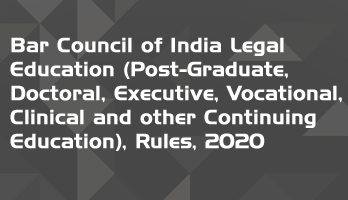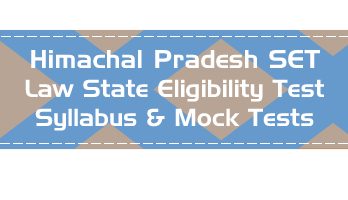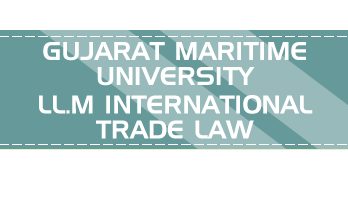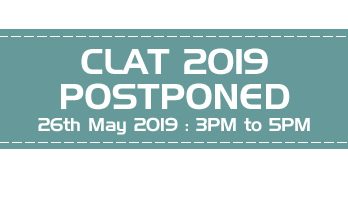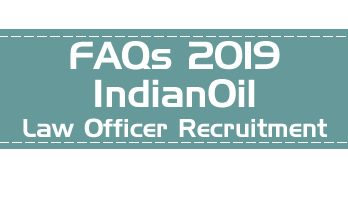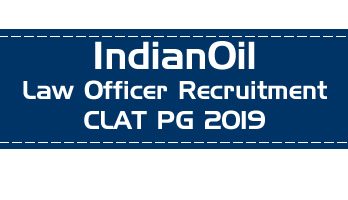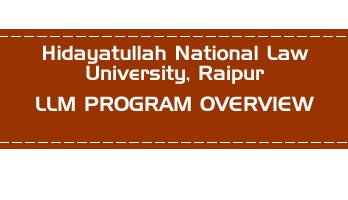Q : How can I prepare for LLM entrance exam?
Ans :
This is a very long answer, partly copy-pasted from my answer(s) to similar questions and partly edited …
First of all, LLM entrance exams (Including CLAT PG) are multiple choice objective type exams based on the entire LLB syllabus. These exams are more ‘Memory biased’, since there are no quants / analytics based questions.
Extensive theory is not the best way to prepare for multiple choice based exams of this type.
The ideal approach would be to solve as many MCQs as possible, covering the entire syllabus, with focus on the critical areas and solve all the previous papers you can find.
Solve at least two mock tests every day and after you have finished, re-attempt the ones from the previous day till you can blindly click on the right answer without thinking too much.
After all, almost 85% of the questions are repeats / variants from previous years or derived from ‘important questions’ from other similar exams.
The trick is to ‘know’ the correct answer, even if you don’t know why it is the correct choice.
Moreover, there is no explanation required for most of the LLM entrance questions.
For example, look at some questions from the CLAT PG paper listed below. For such questions, you just need to know the answer as soon as you see the question. There is no explanation; it is purely about memory.
Trying to remember all the articles of the Constitution or all the sections in an act is not required; while the constitution may have 440+ articles, 90%~95% of the questions will be from from a set of 50 articles.
If you practice plenty of mock tests which have selected questions on the important sections / articles etc. and thoroughly solve all the previous papers; you will remember the answer when you see the question.
Examples :
1. If any question arises whether a Bill is a Money Bill or not, the decision given by the shall be final:
(a) Finance Minister
(b) Speaker of the Lok Sabha
(c) Vice-President
(d) Prime Minister.
2. Part IX-B of the Constitution of India dealing with the ‘Co-operative Societies’ was inserted by:
(a) The Constitution (Ninety Fifth Amendment) Act, 2009
(b) The Constitution (Ninety Eighth Amendment) Act, 2012
(c) The Constitution (Ninety Third Amendment) Act, 2005
(d) The Constitution (Ninety Seventh Amendment) Act, 2011.
3. Article 280 of the Constitution of India deals with:
(a) Finance Commission
(b) Election Commission of India
(c) Union Public Service Commission
(d) Comptroller and Auditor-General.
Once you have answered these questions twice or thrice, the fourth time you will easily remember the answers.
Here, the important thing is to ensure that the answer choices are shuffled with each attempt, so that you don’t remember the choice ‘a’ / ‘b’… you actually remember the answer next to the choice. (Which is why we built this into our online prep system)
What’s the ideal prep approach?
Complete 2 (or preferably 3 or more) mock tests every day. Review the results carefully and make a note of the questions you got wrong and memorize the correct answers.
Repeat the process every day till you circle back to the first set of mock tests and just keep repeating the cycle.
In around 10 – 15 days, you will have become familiar with a bulk of the ‘important’ questions; and you will know the answer by instinct and your scores will start going up.
Once you know & remember the correct answer, you can answer these questions & any variations thereof.
Q : Does the Bar Council recognise distance education in law? What options do I have to get for a degree in law in Bangalore?
Ans :
This is adapted from my answer to a similar question . . .
A quick Google search shows several Institutions in India offering a distance education ‘Bachelors degree in law’, usually a BL / BBL etc. But there are also some which offer an LLB! Like this . . .
Q : After a BIPC, can I take an LLB law course?
Ans :
Yes you can . . .
The basic eligibility requirement for 5 year LLB admission in most colleges will be “2 year PUC or equivalent course (10+2) with 45% Aggregate Marks (OBC 42%, SC/ST 40%).”
Apart from the basic eligibility, depending on the type of college (Tier 1 / 2 / 3), you may have to write an entrance exam (Tier 1) or go through a short-listing process based on your previous academics (Tier -2) or just walk in, pay fees and get admitted (Tier -3).
There is no specification with regards to the stream in which you have completed your +2 level education. As long as it is a recognized college and course & not a one-sitting type exam, you can take up LLB.
If you wish to pursue a 3 year LLB, you need to be a graduate in any stream; and meet the minimum marks criteria (e.g. 45% for Gen etc.) and the rest of the process will be similar, based on the type of college. i.e. Tier 1 / 2 / 3 as mentioned above.
Q : Which are the best colleges through LSAT India for an LLM?
Ans :
This is the list of institutions that officially accept LSAT scores . . .
The Colleges / Universities in this list below accept LSAT scores for their LLB / LLM programs as applicable.
However, some of the institutes may accept other test scores too; such as the CLAT / AILET / HPNLET etc.
You will need to check the admissions notifications for these institutes to decide on which is the best entrance test to take. i.e. If you are already taking CLAT, do you need to take the LSAT separately.
- Adamas University
- Alliance School of Law, Alliance University
- Amity Law School/Amity University Haryana (AUH)
- Asian Law College (ALC)
- Auro university School of Law
- Aurora
- Aurora’s Legal Sciences Institute, Nalgonda
- Azim Premji University
- B.N. Law College
- B.S. Anangpuria Institute of Law
- BMS College of Law
- C. M. R. Law School
- Central India College of Law
- Chanakya Law College
- Chotanagpur Law College
- College of Legal Studies (UPES)
- Disha Law College
- Dr. Anushka Vidhi Mahavidyalaya
- Durgapur Institute of Legal Studies (DILS)
- Faculty of Law, ICFAI University
- Faculty of Law, ICFAI University
- Faculty of Law, Marwadi University
- Faculty of Law, SGT University
- Faculty of Law, SRM University
- Faculty of Law,ICFAI University
- G.H. Raisoni Law School
- GD Goenka University School of Law, Gurgaon
- Geeta Institute of Law
- Glocal University’s Glocal Law School
- Haldia Law College
- IFIM Law College, Bengaluru
- IIMT-Greater Noida
- IMS Unison University
- Indore Institute of Law
- Institute of Law & Research
- Institute of Law / AISECT University Bhopal (M.P)
- Institute of Management Studies
- ISBR Law College , Bangalore
- Jagan Nath University
- Jagan Nath University
- Jai Hind Defence College of Law
- Jaipur School of Law
- Jayoti Vidyapeeth Women’s University, Jaipur
- JECRC University
- JSS Law College
- K.R. Mangalam University
- Karnavati University, Unitedworld School of Law.
- KLE B V Bellad Law College
- KLE Society’s Law College
- KLE\\’s GK Law college
- LJ School of Law
- Lovely Professional University
- M A B Institue of Juridical Science
- M.L. & G.E. Society’s Manikchand Pahade Law College
- MATS Law School
- Midnapore Law College
- N A Global Law School
- NCU Law School
- NIMS Law School
- NIMT Institute of Method & Law
- O P Jindal Global University
- Parul Institute of Law
- PES University
- Presidency University, School of Law, Bangalore
- R N Patel Ipcowala School of Law and Justice
- Raffles School of Law, Raffles University
- REVA University
- RNBGU School of Law
- Royal College of Law
- Sardar Patel Subharti Institute of Law
- Saveetha College Of Law
- School of Law, Ansal University
- School of Law, Galgotias University
- School of Law, Gitam University
- School of Law, Jagran Lakecity University
- School of Law, Noida International School
- School of Law, Sharda University
- Shobhit University (Shobhit Institute of Engineering & Technology – A Deemed to be University)
- Shri Swami Dayal Bhatnagar Law College
- Shri Vaishnav Institute of Law
- Siddhartha Law College
- Smt. Kamlaben Ghambirchand Shah Law School
- Soundarya College Of Law
- Tagore Public Law College
- The ICFAI Law School, The ICFAI Foundation for Higher Education
- Vaikunta Baliga College of Law
- VIT Law School
- Vivekananda Global University, Jaipur
Q : What is the process to get admission in law and age limit?
Ans :
This part is from my answer to a similar question :
There are three ways to taking up an LLB course . . .
[1] Without any entrance exam – There are many tier-3 and some tier-2 Law Colleges across India, where admission is done on a first-come-first-admitted basis. No entrance exam. Just meet the minimum criteria in terms of your previous academics and pay the fees.
These are proper colleges, recognized by the Bar Council and have 3 year & 5 year LLB courses, affiliated to various Universities. They normally will not have any placement process and the other facilities also are quite basic.
But, you will get a proper LLB degree after completing the course.
[2] With entrance exam – there are tier 2 colleges that have their own entrance exam and in some states there is a common entrance exam for Law Courses across many participating colleges – tier 2 & 3.
For example, the Andhra Pradesh – AP LAWCET, Telangana – TS LAWCET, Kerala CEE , DU Law entrance exam etc.
Bulk of the seats are filled through the exams, but there will usually be a ‘Management quota’ of seats with higher fees in private colleges that participate in these common entrance process.
[3] Through CLAT – CLAT is the common entrance exam for the National Law Schools / National Law Universities across India. These tier 1 institutes have placement process, superb facilities and the competition for getting admission is also quite tough.
Note : NLU Delhi and HPNLU Shimla do not participate in the CLAT as they have their own separate entrance exams.
So, to answer your question . . . you can definitely do your LLB without CLAT or any other entrance; as long as you meet the minimum criteria.
Coming to the Age limit factor . . .
As of today (21st June ), there is no upper age-limit for LLB admissions.
While a upper age limit was briefly in-place, it was struck down by the courts.
However, BCI was supposed to appeal the decision and there is no update on the same.
Currently, the Colleges affiliated to the Karnataka State Law university are getting students to fill up a declaration form stating that candidates to the effect that :
“I hereby undertake that, I shall be bound by the final decision of the Hon’ble Supreme Court of India, New Delhi in the Writ Petition (Civil) No. 1023/2016.
My admission shall be subject to the final judgment in the above cited case and the decision of the B.C.I.
If my admission gets cancelled as per the final decision of the Court or B.C.I, then I alone will be responsible for the same. I shall not hold the University responsible for the cancellation of my admission.”
The age limit mentioned in the application form is 20 yrs Gen or 22 yrs SC/ST for 5 year LLB and 30 yrs Gen or 35 yrs SC/ST for 3 year LLB.
If the age limit is reintroduced, it will be applicable on all colleges across India. I don’t believe it will be retrospective, so students already pursuing an LLB should be exempted. However, let’s wait till the case is decided.
Q : I completed my graduation in BBM. Now, I wanted to study an LLB. Which law schools are offering law after graduation or what entrance tests are there like the CLAT?
Ans :
There are three ways to taking up an LLB course . . .
[1] Without any entrance exam – There are many tier-3 and some tier-2 Law Colleges across India, where admission is done on a first-come-first-admitted basis. No entrance exam. Just meet the minimum criteria in terms of your previous academics and pay the fees.
These are proper colleges, recognized by the Bar Council and have 3 year & 5 year LLB courses, affiliated to various Universities. They normally will not have any placement process and the other facilities also are quite basic.
But, you will get a proper LLB degree after completing the course.
[2] With entrance exam – there are tier 2 colleges that have their own entrance exam and in some states there is a common entrance exam for Law Courses across many participating colleges – tier 2 & 3.
For example, the Andhra Pradesh – AP LAWCET, Telangana – TS LAWCET, Kerala CEE , DU Law entrance exam etc.
Bulk of the seats are filled through the exams, but there will usually be a ‘Management quota’ of seats with higher fees in private colleges that participate in these common entrance process.
[3] Through CLAT – CLAT is the common entrance exam for the National Law Schools / National Law Universities across India.
These tier 1 institutes have placement process, superb facilities and the competition for getting admission is also quite tough.
Note : NLU Delhi and HPNLU Shimla do not participate in the CLAT as they have their own separate entrance exams.
If you prefer completing an LLB from a regular college in your home town, I would suggest doing a quick Google search for Law Colleges in your area and approaching them directly for info on admission formalities, dates and details.
Q : Is it important to do an LLM for cracking the judiciary exams?
Ans :
This is my answer from a similar question.
Not Mandatory . . . but why not ?
Why LLM ?
If you have chosen law as your career, an LLM is always helpful.
Either for enhancing your knowledge, for specializing in a particular area or even just for adding an additional degree after your name to impress prospective clients or employers.
An LLM is a one / two year commitment and is almost a sure-shot thing; as long as you put in the minimum required effort, you will get your degree.
The Judicial Services exam . . .
The Judicial Services is a ‘high demand’ career option in India. Depending on the specific state, the role to applicant ratio can be anywhere in the range of 1 : 1000 or higher.
Not every candidate get through in the first attempt, many of them have multiple attempts.
Considering that the Judicial Services exam is a mix of objective and subjective papers + personal interview – I would suggest a 6 to 8 month prep period.
Syllabus for the Judicial Service exams . . .
The Judicial Services syllabus is predominantly based on the standard LLB syllabus; and will also include some state level laws.
What will you study in LLM ?
Since Law will be your subject in the Judicial Service Exams, your LLM course will not be a totally different direction.
You will be focusing on one or more of the Law subjects in your LLM course, which will only add to and help in your Judicial Exam preparation.
How do I balance the time required for LLM and Judicial Services prep ?
Think of the LLM as a subset of your Judicial Services prep.
Personally, I have seen that we often are at our peak efficiency when our schedules are tightly packed.
We tend to get work done faster and more efficiently – if we are running against a deadline, with some pressure.
How to prioritize ?
Consider various factors, such as :
- What is your current age; and considering the age limits for Judicial services, how much of a leeway do you have ?
- Where do you realistically see yourself in terms of your ability to crack the Judicial Services ?
- What are your options and career preferences ?
- What is your ability to focus -concentrate and prepare full-time? i.e. If you decide to focus solely on Judicial Services, will you be able to actually study full-time ?
LLM from where ?
In the above part, I am assuming that you are willing to do an LLM from a regular / local college, where you might not have to write any entrance exams; and you can join from the next academic session.
However, if your intention is to do your LLM from a Tier 1 or Tier 2 college, then you will have to prepare for the entrance exams; and that makes things a lot more simpler – since there is a large overlap in the Judicial Services and LLM entrance syllabus; you can prepare for both simultaneously.
Bottom line – you have nothing to lose, but everything to gain by preparing for both the exams; or pursuing an LLM while you prepare for Judicial exams. If it comes to a situation where you have to take a call on which exam to take, you can decide at that point.
Thanks for the A2A.
Q : Is doing an MSc in computer science from KSOU valid for the UGC NET exams?
Ans :
I am not sure . . .
Currently there seems to be quite a bit of uncertainty over UGC’s recognition of the courses offered by KSOU.
I read somewhere that KSOU’s recognition was terminated by the UGC in June 2015 from 2012-13 academic year onward. (retrospectively ?)
Currently, there some ongoing cases, pending appeals; and there were some recent articles mentioning that KSOU is expecting recognition from the UGC for the year -19.
But still . . .
If you already have a Masters level degree from KSOU, when you fill up the application form for UGC NET, if KSOU is not available in the drop-down list, you can use ‘other’ as an option and mention the course details to register for the NET and probably even take + qualify.
The issue would be . . .
Even of you qualify in the UGC NET, the if KSOU courses do not get recognition in-time, the issue would be that the degree would not be considered by other institutions for JRF / Asst Prof. So the UGC NET qualification will not serve any purpose.
At this time, if you have an option, go with any other University. Else, wait for the appeals to get settled and the decision on recognition or lack thereof get confirmed.
Thanks for the A2A.
Q : Which universities provide an integrated course in LLB courses without giving the CLAT entrance exam?
Ans :
Almost all Universities . . .
Almost all the Universities that have a Faculty / Department of Law have a 3 year and a 5 year LLB.
But admission to the University Law Schools may be a little tougher since the demand will be usually higher and they might have an entrance exam. Even if there is no entrance exam, the admissions may be on the basis of previous marks – and an admit list is published after all applications are received.
However, the Tier III colleges affiliated to these universities will also have a 3 year and 5 year LLB and do not have any entrance exams for admission.
Since the number of approved seats in these colleges is usually more than the demand, admission in these colleges is just about walking in with the required documentation and paying the fees.
The only disadvantage with the Tier III colleges is that the quality of the faculty and the facilities will not be great. There wont be any placements, extra- curriculars, corporate interactions etc.
However, you will have the same syllabus and get the same BCI approved LLB as anyone else.
Take a look at this list on the Bar Council website. It is an old list (I couldn’t find an updated list), but things haven’t changed much.
You can see all the colleges / Universities that have a 3 year and 5 year BCI approved LLB :
Q : Is online coaching effective for cracking any competitive exam (JRF NET English)?
Ans :
I am adapting this answer from one of my previous answers . . . Please bear with this long answer 🙂
Yes. But . . .
Let me explain.
On a broad level, you can classify exams into ‘memory biased’ and ‘knowledge biased’. This classification mostly depends on the subject of the Exam.
Mathematics is an example of a ‘Knowledge Biased’ exam.
If you take Algebra – you need to know how to solve an equation; just memorizing an answer or set of answers will not help; Practicing 100s of MCQs, without knowing the correct method to solve them, will not be of much help.
You need to have the fundamental knowledge on the subject, else the going gets difficult. So preparing for the exam requires going back to the basics.
However, take most of the UGC NET subjects – for example Law / Management / Commerce (Subjects which I am personally very familiar with.) They are all Memory biased.
For example, if a question from Constitutional Law asks which Article deals with ‘Equality before law’ – You just need to know it is ‘14’. There is no elaborate explanation required for it.
After you have answered the above question a couple of times, you will automatically remember it wherever you see the same / similar question.
What about English ?
I would classify English subject for the UGC NET as 80% memory biased and 20% knowledge biased.
The 20% pertains to aspects like English Grammar . . . which has a set of specific rules and you need to understand the rules to easily answer any questions based on them.
The trick with memory biased subjects is to solve as many MCQs as possible. After each attempt review where you went wrong and remember the correct answer; and keep solving them till you can blindly mark the correct answer.
Before you start your prep, just read through the past five years question papers. You will notice that a bulk of the questions are repeats / variants / derivatives of previously asked questions.
So find lots of previous question papers and mock tests and keep practicing!
If an online coaching offers all the previous question papers & plenty of mock tests, it can be more effective than a classroom coaching – especially if there is no specific need to study elaborate theory.
Note : For exams which include quants / reasoning / analytical questions; I would strongly suggest going to a good classroom coaching to start with. Because a good teacher should be able to teach you the fundamentals and the short-cuts.
Once you are thorough with the fundamentals, online coaching is good for plenty of practice.
Thanks for the A2A.
Q : Which one is better if someone’s final goal is the UPSC, an LLB or a BA?
Ans :
Why not a BA LLB ?
A BA LLB is an integrated 5 year course which leads to a professional degree, which allows you to practice or take up an employment.
You also save one year (BA + LLB = 6 years whereas BA LLB = 5 years) which you can dedicate for your UPSC preparation.
It also opens up a few more career avenues apart from the UPSC. You can also look at Judicial Services and other options that are specifically open to Law Grads.
What’s your plan B ?
While your final goal may be UPSC and it is your Plan A, it would always be preferable to have a Plan B.
The UPSC is a highly competitive exam; I used these numbers in one of my other answers, which shows the funnel & filtration of candidates through the various steps.
- Year – 2017
- Prelims Appeared – 5 lakhs (approx)
- Prelims Cleared – 13,366
- Mains Appeared – (I don’t have the numbers)
- Shortlisted for Interview – 2568
- Final Selects – 990
So, the final selects were around 0.19% of the total aspirants. Moreover, not every candidate get through in the first attempt, many of them have multiple attempts.
Completing a BA degree alone may not help you pursue a profession or a career.
However, if you have an existing family business that you intend to carry forward, you can pursue a BA and focus specifically on preparing full-time for the UPSC.
But personally . . . I would still recommend that you should take up BA LLB.
Thanks for the A2A.
Q : How can I get through my NET or SLET exam?
Ans :
Depends on the subject . . . but the general principles will still apply.
On a broad level, you can classify exams into ‘memory biased’ and ‘knowledge biased’. This classification mostly depends on the subject of the Exam.
Once upon a time, the UGC NET probably had both type of subjects. But after the CSIR NET came into being; the UGC NET is predominantly memory biased and the CSIR NET is knowledge biased.
Mathematics is an example of a ‘Knowledge Biased’ exam.
If you take Algebra – you need to know how to solve an equation; just memorizing an answer or set of answers will not help; or even practicing 100s of MCQs without knowing the correct method to solve them will not help.
You need to have the fundamental knowledge on the subject, else the going gets difficult. So preparing for the exam requires going back to the basics.
However, take most of the UGC NET subjects – for example Law / Management / Commerce (Subjects which I am personally very familiar with.) They are all Memory biased.
For example, if a question from Constitutional Law asks which Article deals with ‘Equality before law’ – You just need to know it is ‘14’. There is no elaborate explanation required for it.
After you have answered the above question a couple of times, you will automatically remember it wherever you see the same / similar question.
The trick with memory biased subjects is to solve as many MCQs as possible. After each attempt review where you went wrong and remember the correct answer; and keep solving them till you can blindly mark the correct answer.
So, without knowing the specific subject you are referring to; what I can still say is that you cant go wrong with the ‘solve as many as possible’ approach for most UGC NET subjects.
Find lots of previous question papers and mock tests and keep practicing!
Thanks for the A2A.
Q : Should I do an LLM before appearing for the civil judge exam?
Ans :
Not Mandatory . . . but why not ? Consider the following points :
Why LLM ?
If you have chosen law as your career, an LLM is always helpful.
Either for enhancing your knowledge, for specializing in a particular area or even just for adding an additional degree after your name to impress prospective clients or employers.
An LLM is a one / two year commitment and is almost a sure-shot thing; as long as you put in the minimum required effort, you will get your degree.
The Judicial Services exam . . .
The Judicial Services is a ‘high demand’ career option in India. Depending on the specific state, the role to applicant ratio can be anywhere in the range of 1 : 1000 or higher.
Not every candidate get through in the first attempt, many of them have multiple attempts.
Considering that the Judicial Services exam is a mix of objective and subjective papers + personal interview – I would suggest a 6 to 8 month prep period.
Syllabus for the Judicial Service exams . . .
The Judicial Services syllabus is predominantly based on the standard LLB syllabus; and will also include some state level laws.
What will you study in LLM ?
Since Law will be your subject in the Judicial Service Exams, your LLM course will not be a totally different direction.
You will be focusing on one or more of the Law subjects in your LLM course, which will only add to and help in your preparation.
How do I balance the time required for LLM and Judicial Services prep ?
Think of the LLM as a subset of your Judicial Services prep.
Personally, I have seen that we often are at our peak efficiency when our schedules are tightly packed.
We tend to get work done faster and more efficiently – if we are running against a deadline, with some pressure.
How to prioritize ?
Consider various factors, such as :
- What is your current age; and considering the age limits for Judicial services, how much of a leeway do you have ?
- Where do you realistically see yourself in terms of your ability to crack the Judicial Services ?
- What are your options and career preferences if you do not clear either or both the exams?
- What is your ability to focus -concentrate and prepare full-time? i.e. If you decide to focus solely on Judicial Services, will you be able to actually study full-time ?
LLM from where ?
In the above part, I am assuming that you are willing to do an LLM from a regular / local college, where you might not have to write any entrance exams; and you can join from the next academic session.
However, if your intention is to do your LLM from a Tier 1 or Tier 2 college, then you will have to prepare for the entrance exams; and that makes things a lot more simpler – since there is a large overlap in the Judicial Services and LLM entrance syllabus; you can prepare for both simultaneously.
Bottom line – you have nothing to lose, but everything to gain by preparing for both the exams; or pursuing an LLM while you prepare for Judicial exams. If it comes to a situation where you have to take a call on which exam to take, you can decide at that point.
Thanks for the A2A.
Q : Will my CLAT rank decrease after compensatory marks to aggrieved students as mentioned in the SC verdict?
Ans :
To be frank, I too don’t have the complete information, but based on what I have read so far . . .
The article about the court proceedings mentions
“The bench also noted that the first round of counselling, which commenced yesterday, shall proceed and that the court shall not disturb the admissions so made, unless the University chooses to deem such seat allocation as provisional….”
“When the merit list is redrawn after such compensation, the existing ranks may not be affected and the candidates receiving the same marks as another student achieving, say Rank 51, shall be accorded such ranks as 51A, 51B and so on . . .”
The article also mentions this :
“But suppose a student with rank 115 gets admitted to NLU, Jodhpur. Upon revision of marks, certain other candidates may also acquire ranks 115A, 115B, 115C and so on…to avoid any heartburn, Your Lordships’ orders will be needed to create the addition . . .”
For which, the bench observed :
“We will not resort to this unless we are driven to…say, NLSUI, Bangalore admits 60-80 students and after the first counselling, 5 seats remain, then the second merit list shall proceed normally, there being no displacement…”
Reading the above statements leads to more questions than answers.
But at least your basic question is addressed . . . as per the above statements, the current ranks may not change.
Source of the information mentioned above :
Q : Should I prep for Judicial Services or go for CLAT PG?
Ans :
This answer is adapted from my answer to a similar question . . .
Why not both ?
The CLAT PG . . .
Clearing the CLAT PG will get you a seat in one of the premier Law Schools in India – which helps you academically, educationally and also from a long term career perspective.
Now, CLAT PG is not exactly a cake-walk, considering the lower number of seats and the high degree of competition.
But a 3 to 6 month dedicated prep should you get a good rank; and a good chance of bagging a seat.
The Judicial Services exam . . .
The Judicial Services is a ‘high demand’ career option in India. Depending on the specific state, the role to applicant ratio can be anywhere in the range of 1 : 1000 or higher.
Considering that the Judicial Services exam is a mix of objective and subjective papers + personal interview – I would suggest a 6 to 8 month prep period.
Syllabus for both the exams . . .
The syllabus for both the exams is predominantly similar. Both are based on the standard LLB syllabus; but the emphasis on various areas that will be tested is different. i.e. CLAT PG may emphasize more on Jurisprudence & Judicial Services may focus more on CPC and IPC etc. And the Judicial services will also include some state level laws.
However, the basic foundation for both the exams is same. So who not practice for both the exams ? It will give you plan A and plan B.
How do I balance the time required for CLAT PG and Judicial Services prep ?
Think of the CLAT PG prep as a subset of your Judicial Services prep.
Personally, I have seen that we often are at our peak efficiency when our schedules are tightly packed.
We tend to get work done faster and more efficiently – if we are running against a deadline, with some pressure.
How to prioritize ?
Consider various factors, such as
- Where do you realistically see yourself in terms of your ability to crack the Judicial Services ?
- What are your options and career preferences if you do not clear either or both the exams?
- What is your ability to focus -concentrate and prepare full-time?
Bottom line – you have nothing to lose, but everything to gain by preparing for both the exams. If it comes to a situation where you have to take a call on which exam to take, you can decide at that point.
Q : When will the TS SET Admit Card be issued? Where can I download my hall ticket?
Ans :
TS SET – Telangana State – State Eligibility Test
The TS SET hall tickets will be available for download from the 25th of June onward, so there is still some time.
The admit card is to be downloaded from the official TS SET website and candidates should carry a clear print of the same while arriving at the exam venue. (Along with other approved photo ID proof)
TS SET organizers (Osmania University) will not be sending any hard-copies individually to the candidates.
While an email notification is expected, do not depend on it. It is essential for candidates to visit the official website and keep checking for the hall-ticket & other updates from the 25th of June onward.
Q : Can I do LLM in UAE after LLB from India to practice in UAE?
Ans :
I don’t think so . . .
From what I understand, foreign / expat lawyers can practice local law as consultants, but only a UAE national can appear in court as an Advocate or Litigator.
Moreover, even for consultants, the rules are also not standard across the UAE. Each emirate may have some specifications that are applicable; in terms having a business location locally, being registered as a firm or practitioner there etc.
As far as basic qualification is concerned, a degree in law, Islamic law or equivalent qualification from an accredited institute in the UAE + some professional training period are mandatory. Also, in most countries, the basic qualification for practicing is a bachelors degree and not an LLM (which is usually a one year program)
Since being a foreign national precludes the option of actually practicing as an advocate, not sure if it is useful to complete a LLM in the UAE; Unless you happen living there due to other reasons (such as your family shifting to UAE,) in which case, it may be easier to enroll and complete the LLM in the UAE.
But an LLM from UAE may not have too much of a value from career-qualification perspective, in India or any other countries.
I would suggest a bit of Googling and ideally speaking to a lawyer in the UAE to get the complete info.
Thanks for the A2A.
Q : What is the change in the UGC NET paper pattern for 2019?
Ans :
Changes from onward . . .
(1) 6% criteria : The primary change from a ‘qualification’ perspective is the new 6% criteria that is applicable from Nov 2017.
It means that going forward, 6% of the eligible candidates (who appear in both the papers and score the minimum marks required) will be declared as ‘qualified’ in the UGC NET exam.
Among the 6% – depending on the age limits and the choice made by the candidate while filling up the application form, she / he will be eligible / qualified for JRF and Assistant Professor roles OR only for the Assistant Professor role.
(2) Question paper Pattern – From onward, the erstwhile Paper III has been merged with Paper II. So the new UGC NET exam consists of two Papers, the general Paper I and the subject specific Paper II.
The syllabus for the new Paper II encompasses what was separately covered for the old pattern Papers II and III.
The overall length of the exam has been reduced – previous papers II and III had a total of 125 questions. (50 + 75); whereas the new Paper II has 100 questions – which is a reduction of 25 questions overall.
(3) If the NTA – National Testing Agency takes over the UGC NET exam from 2019 , the logistics of the exam may change, but the pattern and syllabus are still under the purview of the UGC. i.e. rather than CBSE conducting the exam, NTA will conduct it.
NTA may decide to convert the exam from paper based to an online exam, but that will not affect the pattern or syllabus; unless the UGC changes the same.
Q : When can I get the CSIR JRF certificate of June 2017?
Ans :
Go to the official URL . . .
Q : How should I start to prepare for the CLAT PG 2019?
Ans :
Slow but steady, wins the race !
The CLAT PG LLM entrance exam is a multiple choice – objective type exam, based on the entire 3 year LLB syllabus.
But the crucial topics are Jurisprudence & Constitutional law – which together account for 2/3rd of the exam and the remaining questions are from across most of the important law subjects.
The CLAT PG paper even had a couple of questions based on recent events or cases.
Understand the pattern of the exam.
(1) It is completely an objective paper
(2) There are no ‘analytical’ / ‘quants’ / ‘reasoning’ based questions
(3) A bulk of the questions emphasize more on memory & recognition skills (e.g. Which Article says this . . . Which case is for what . . . What Salmond / Austin / Hart or Holmes said. . . Who wrote this book etc.)
(4) A significant number of questions are repeated / variations / adapted from previous exams or from other similar exams.
Smart work vs. Hard work
With such a wide and extensive syllabus, studying elaborate theory is not the best way to prepare for CLAT PG, DU LLM, UGC NET Law or most other multiple choice based PG Law exams.
For example, though there are 448 Articles in the Constitution of India as on date, it is only 30 ~ 40 Articles that feature in 80% of the questions in most exams. Another 10 articles may account for another 15%.
So, being familiar with around 50 articles will be enough to tackle 95% of the questions based on the Constitution of India.
Similarly, Jurisprudence is a deep ocean that can never be covered fully. However, 95% of the questions are again repeats / variants / derivatives from a set of standard questions.
Ideal approach to preparing for the CLAT PG 2019
The ideal approach would be to solve as many MCQs as possible, covering the entire syllabus, with focus on the critical areas and solve all the previous papers you can find.
If you are starting early, solve at least two mock every week and after you have finished, re-attempt the ones from the previous week till you can blindly click on the right answer without thinking too much.
Steadily keep increasing the number of mocks per week and by the time of the exam; you can score top marks without breaking a sweat.
To summarize :
- Work at a steady pace.
- Solve as many mocks and MCQs as possible.
- Keep repeating till you are consistently scoring above 85%



